Key takeaways:
- Marine field trips foster curiosity and stewardship towards the ocean’s ecosystem through hands-on experiences and sensory engagement.
- Outdoor learning enhances children’s cognitive, social, and emotional development, promoting teamwork, communication, and stress relief.
- Effective trip preparation, including clear itineraries and collaborative activities, maximizes engagement and learning outcomes for children.
- Reflecting on experiences post-trip solidifies learning and helps children articulate their insights about marine life.
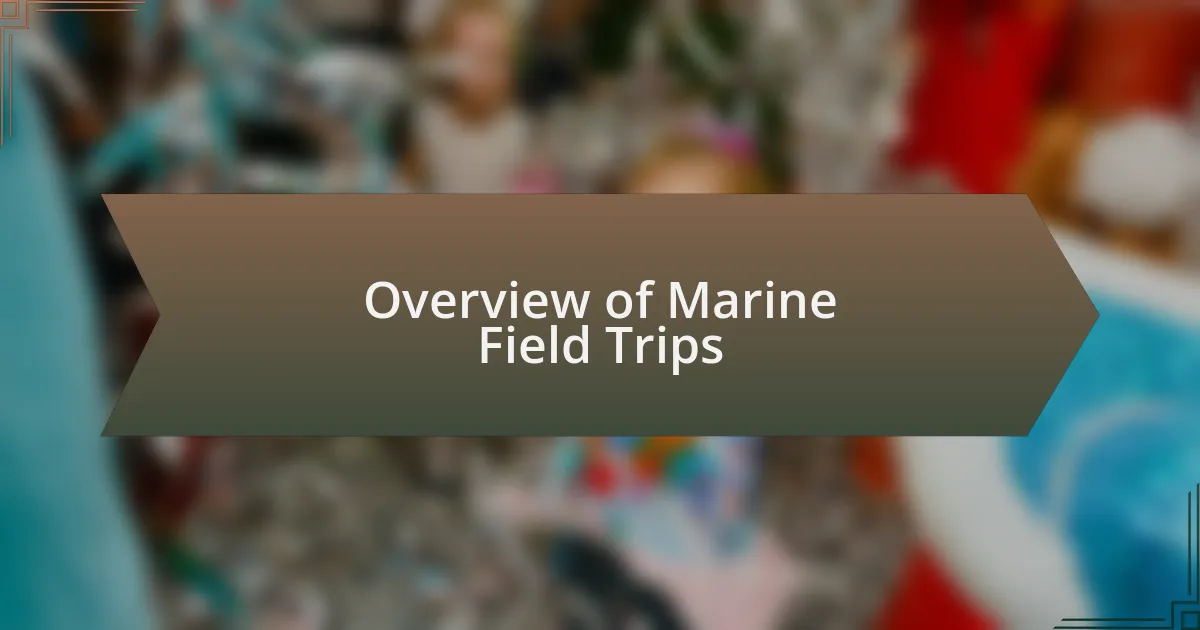
Overview of Marine Field Trips
Marine field trips present an incredible opportunity for children to engage with the ocean’s vast ecosystem. I remember my own excitement on a trip to a local aquarium—it sparked a lifelong fascination with marine life. Isn’t it amazing how a single experience can ignite curiosity and wonder in young minds?
During these excursions, kids can observe marine creatures in their natural habitats, enhancing their understanding of biodiversity. I often think back to the thrill of touching a sea cucumber—it was surreal! Experiences like this not only boost knowledge but also foster a sense of stewardship for our oceans.
Moreover, marine field trips often incorporate hands-on activities, like snorkeling or beach clean-ups, which truly enrich the educational experience. Have you ever participated in a beach clean-up? The feeling of contributing to something bigger than ourselves can be incredibly empowering. It transforms learning from a passive activity into an active engagement with the world around us, making it memorable for children.
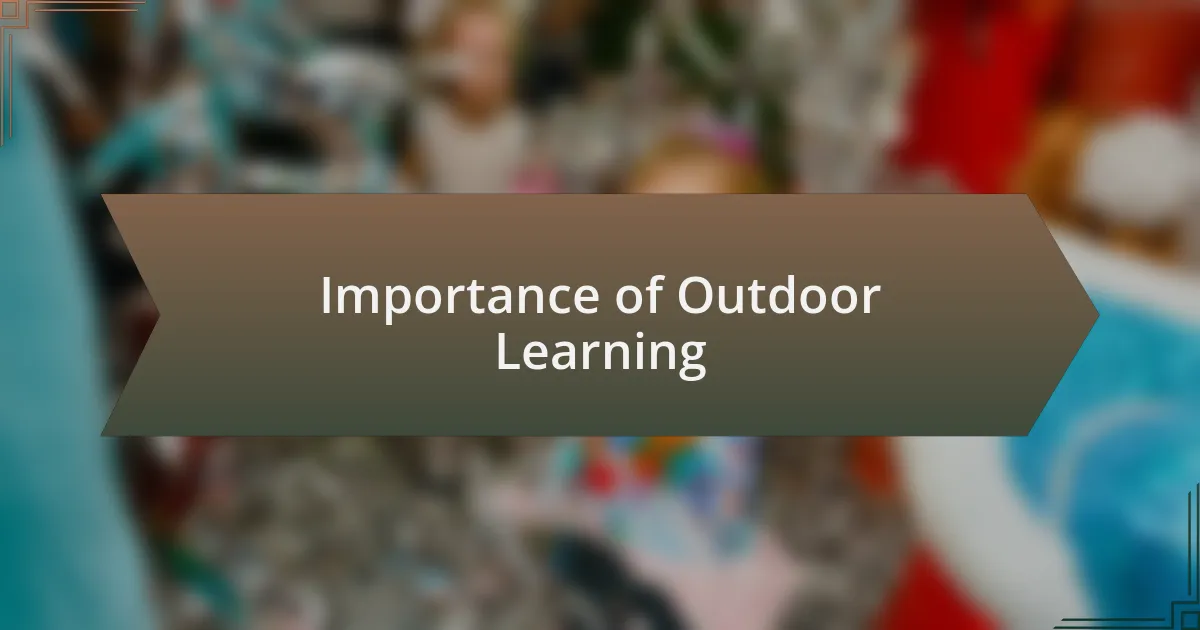
Importance of Outdoor Learning
Outdoor learning plays a vital role in children’s development. I believe that experiencing nature firsthand can profoundly shape a young person’s worldview. Whether it’s feeling the texture of bark or listening to the sounds of the waves, these sensory experiences create lasting memories that books alone cannot provide.
As I reflect on my childhood, I remember how learning about ecosystems while outdoors felt more powerful than any classroom lesson. The excitement of discovering a hidden tide pool or watching crabs scuttle across the sand ignited a passion for science within me. Have you ever watched a child’s eyes light up when they encounter something unexpected in nature? It’s pure magic and speaks volumes about the impact outdoor experiences can have.
Furthermore, outdoor learning encourages teamwork and social skills. I recall working with classmates on a group project during a field trip, where we collaborated to identify different species of plants. That shared experience not only built camaraderie but also taught us the importance of communication and cooperation in a fun, engaging setting. Isn’t it incredible how nature can be the perfect backdrop for personal growth?
Benefits for Children’s Development
Experiencing marine environments can significantly enhance a child’s cognitive abilities. I vividly remember a school trip to the beach where we learned about marine life. The hands-on encounters with starfish and small fish sparked an insatiable curiosity in me. Have you ever seen how quickly a child can grasp complex concepts when they can see and touch the subject? This experiential learning approach not only deepens understanding but also fosters a lifelong interest in science.
Social development blossoms in the open air, especially during marine field trips. I can still recall the joyful chaos of my classmates and me building sandcastles while sharing stories and laughter. This unstructured playtime not only boosted our creativity but also honed our communication skills. Whether navigating teamwork or resolving minor conflicts over a toy shovel, these moments taught us essential interpersonal skills that textbooks don’t cover. Isn’t it fascinating how such simple interactions can lay the groundwork for effective collaboration later in life?
Finally, being immersed in nature alleviates stress and promotes emotional well-being, an aspect sometimes overlooked in children’s development. I remember feeling a sense of peace wash over me as I watched the waves lap against the shore. The soothing sounds of the ocean can evoke feelings of tranquility and happiness, which are crucial for young minds navigating their emotions. Don’t you think it’s important for children to have outlets that help them process their feelings constructively?
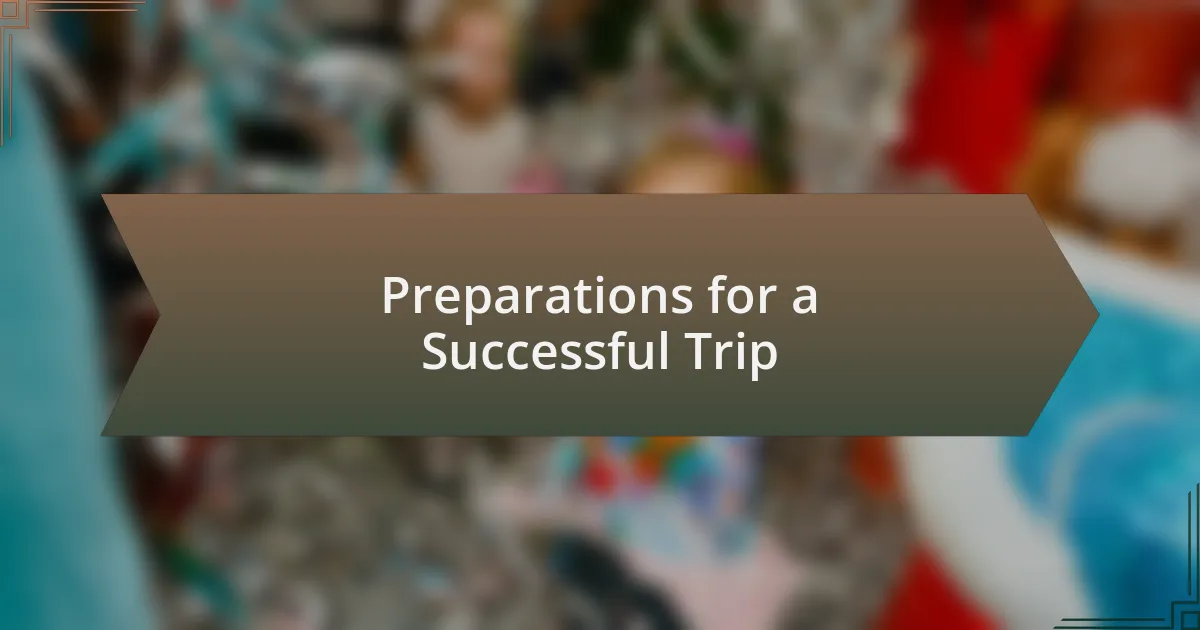
Preparations for a Successful Trip
Preparing for a marine field trip requires thoughtful planning to ensure a memorable experience for everyone involved. I remember gathering all the necessary gear—sunscreen, hats, and a packed lunch—before my own trips. The excitement in the air made each item feel essential, as if they were pieces of a puzzle that would complete our adventure. Did you ever notice how a well-prepared trip can eliminate stress and elevate the excitement?
In addition to packing, coordinating with educators and parents is crucial for a successful outing. I once joined a trip where clear communication made all the difference; we had designated roles and responsibilities, which kept everything running smoothly. Have you ever felt the impact of teamwork in action? Seeing everyone contribute to the experience fosters a sense of community and shared responsibility that can transform the day.
Lastly, having a clear itinerary is essential in maintaining focus and engagement throughout the trip. During my last marine outing, we had a detailed schedule that included guided tours and interactive learning stations. When everyone knows what to expect, the anticipation builds, keeping children engaged. Isn’t it exciting to think about how a well-structured plan can enhance their understanding and enjoyment of the marine world?
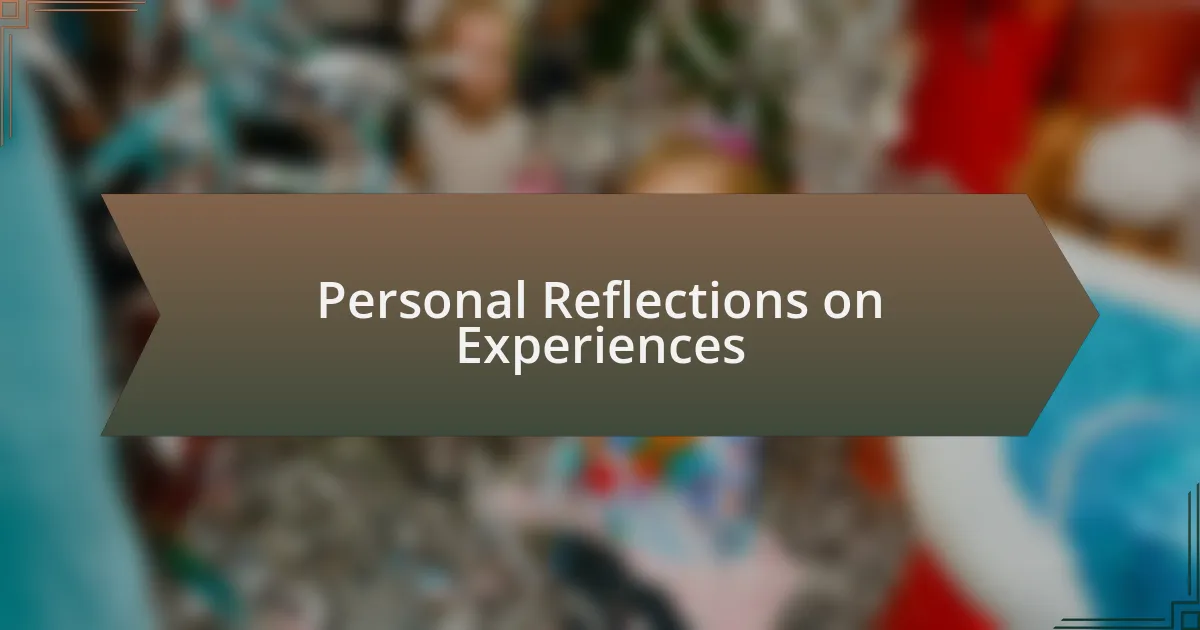
Personal Reflections on Experiences
Reflecting on my marine field trip experiences, I can’t help but recall the sheer joy of watching children discover the beauty of the ocean firsthand. On one trip, I watched a child’s eyes widen as they saw a sea turtle gliding gracefully beneath the waves. That moment illuminated the power of nature to inspire awe and curiosity; it made me wonder how much wonder goes unnoticed in our everyday lives.
I think back to the camaraderie formed during those trips. During one outing, a child who was shy at first found a friend while peering into a tide pool, and they excitedly shared their discoveries with me. It reminded me that shared experiences can break barriers and foster friendships, allowing children to learn not just about the marine world but also about each other. Have you ever seen such connections flourish in unexpected ways?
One experience that stands out is when we encountered a playful pod of dolphins. My heart raced as the children cheered and clapped, their laughter ringing through the air. It made me realize how moments of joy are unforgettable teaching moments. They sparked their imaginations and encouraged questions about marine life that lingered long after we returned home. Isn’t it fascinating how a single encounter can ignite curiosity and learning in such a profound way?
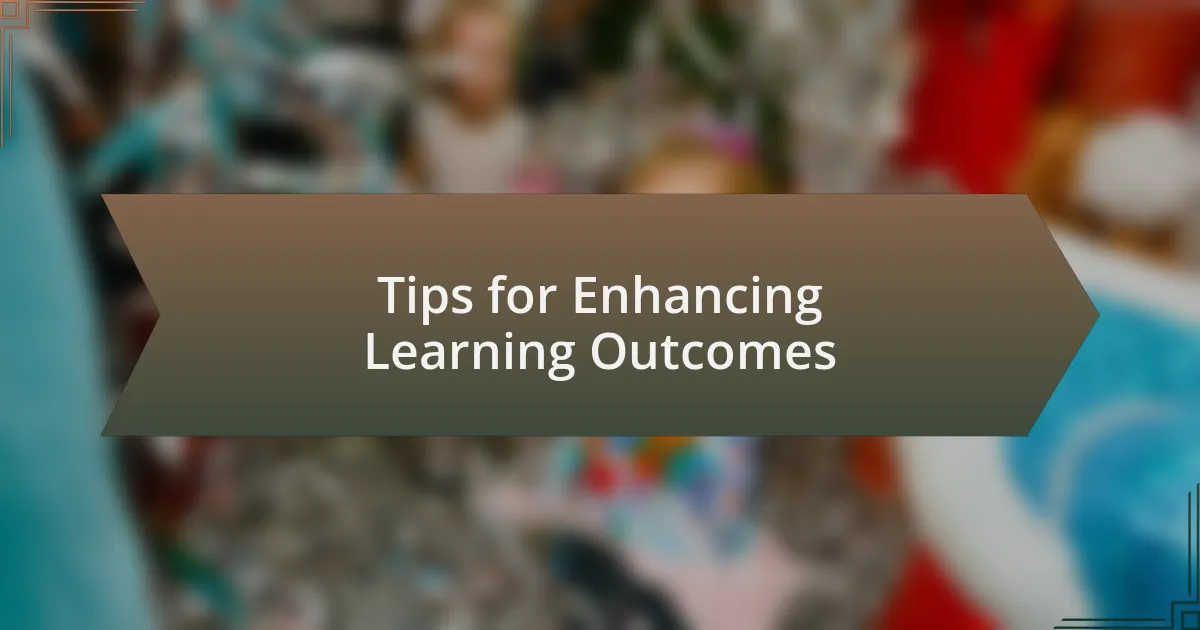
Tips for Enhancing Learning Outcomes
When planning a marine field trip, I’ve found that preparing a set of guiding questions can significantly enhance learning outcomes. These questions act as anchors, allowing children to focus their observations and encourage deeper engagement with their surroundings. For instance, asking them to identify what specific adaptations a creature has for survival can lead to an enriching discussion on biodiversity. Have you noticed how engaging young minds with questions creates a sense of purpose during their explorations?
Another effective tip is to foster collaborative activities that encourage teamwork. I remember organizing a scavenger hunt where children worked in pairs to find different marine species. The excitement on their faces as they checked off each item was contagious. This not only promoted critical thinking as they identified each creature but also built essential social skills. How fulfilling is it to witness children collaborate and cheer each other on in their discoveries?
Lastly, taking a moment for reflection after the trip can solidify learning experiences. During a recent outing, we gathered around to share our favorite moments. Hearing children express their thoughts about what they learned created a magical moment of connection. It’s interesting how reflecting on their experiences can turn fleeting memories into lasting educational impressions. Why not give students the opportunity to articulate their insights and questions, fostering a deeper understanding of the marine world?